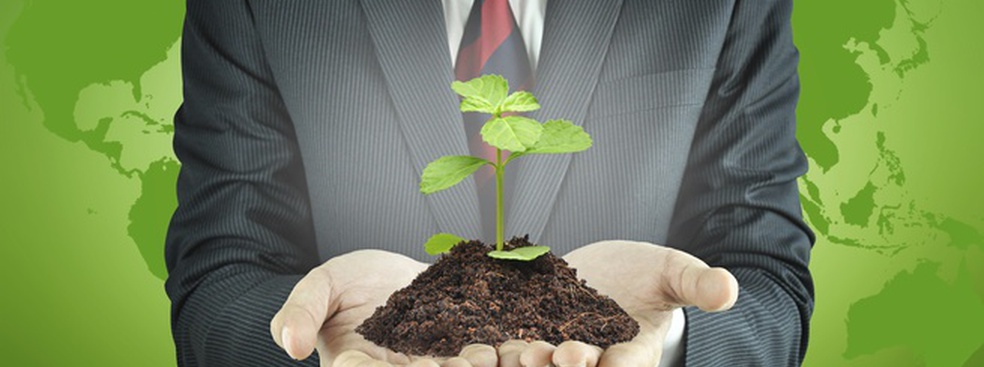In France, as elsewhere in the world, philanthropy has met with renewed interest over the last ten years: not only are donations and foundations clearly progressing in volume but philanthropists are increasingly visible on the public stage and in the media. In a country where the centralization of power and the supremacy of the State in dealing with the common good have traditionally dissuaded philanthropic initiatives, the rapidity of this growth is remarkable. Some congratulate themselves on this intensified generosity within a social and economic context of crisis, while others are distrustful of seeing “private money” play an increasing role in the financing of culture, education or health.
But if philanthropy is gaining in influence, is it understood by those who hold the power in France? What perceptions and what expectations arouse interest in philanthropy among the decision-makers in the French economy, politics, and cultural sector in 2016? In order to answer that question, students who follow the “Philanthropy: Strategies and Impact” course at ESSEC Business School were sent out to meet with leading CEOs, politicians, union representatives, journalists, intellectuals, artists, sports personalities and scientists. Over the course of several months in 2016, they interviewed 51 “deciders” from a variety of backgrounds ranging from Maurice Lévy (CEO of the marketing group Publicis) to Philippe de Villiers (ex-Minister and opposition leader), Nicole Notat (CEO of Vigeo, a CSR audit firm, and ex-union leader) to Claudie Haigneré of the European Space Agency. Their findings were presented at the 3rd Rencontres Internationales des Philanthropes, a forum organized in Paris in June by the Fondation de France.
“Philanthropy is the fruit of the dissatisfaction of each of us who see the world as it is.” Cédric Villani, mathematician, University of Lyon.
If 70% of interviewees had a good opinion of philanthropy, the decision-makers questioned were fewer in number in terms of knowing what philanthropy actually is. Some are committed personally to charitable actions, but not all of them have the same definition: does it mean the donating of money or also the donating of time – otherwise said, the giving of oneself? Is it a philosophy of life or a series of tangible acts? Is it the privilege of the wealthy few or something that concerns everyone? Can companies also be philanthropic? The debate on semantics indicates that the term “philanthropy” is still widely unknown, even misunderstood, by France’s leaders.
Two visions of philanthropy can be drawn: a “free” philanthropy that is self-determined and altruistic, for which the act of donating itself has value, and a philanthropy which wishes itself to be characterized by “impact”, or effectiveness, and which sets itself objectives and must reach them, even if it means making its beneficiaries accountable. The first vision (expressed by 59% of those interviewed) is traditional in the sense that it echoes the etymology of the term philanthropy (“love for mankind”) and considers that the support provided is an unconditional donation which the donator entirely relieves himself of and which is given over in full right to the beneficiary. The second (41% of interviewees), more modern in approach, is not based on emotion but on rationality and the obligation to reach results. It takes into consideration the mindset, vocabulary, and even the tools of the investment: a donation is expected to have a recognized social impact, noticeable if not measurable, by choosing the best and most appropriate methods of operation and implementation. Here philanthropy is viewed as a source of social innovation by supporting unusual or risky projects. But is financing a project with a high risk of failure acceptable to donors looking for a “social return on investment”?
“If philanthropy becomes a means, it is no longer philanthropy.” Pascal Picq, anthropologist, Collège de France.
Philanthropy maintains close and sometimes ambivalent ties with the State, as many of the personalities interviewed indeed expressed. If everyone recognizes the increased role played by philanthropy in France in the financing of the common good, they do not, however, analyze it in the same way. For a third of interviewees, liberal in outlook, it is good news: philanthropy enables the disengagement and lasting shortcomings of the welfare state in numerous areas to be alleviated. For a second third, partisans of an interventionist State, private donations – however useful they may be – can never replace, either in volume or quality, the investments and redistribution provided by the state. For them, philanthropy represents “an excellent reason for the State not to take its responsibilities”, dixit the cartoonist and author Xavier Löwenthal. Lastly, a final third militates for a “strategist State” which encourages but which prioritizes philanthropy, and pushes for multi-party innovation in relation to the skills inherent to each. For all three viewpoints, however, the quality of dialog with government is perceived as a necessity.
French decision-makers have expressed conflicting opinion regarding the place that philanthropy occupies in contemporary capitalism. It could initially be considered that the first needs the second in order to exist. On the one hand, philanthropy only prospers in liberal democracies possessing a propitious legal framework (respect of private property, juridical stability, the possibility to create foundations, fiscal incentives for donating, etc.). And on the other hand, it is a form of freely granted redistribution of the resources created by capitalism, including the colossal fortunes of the famous 1% of the world’s richest. Without the wealth that is created, there are no donations.
Coined “the granddaughter of capitalism”, is not philanthropy also its lifebuoy? Indeed, for certain deciders, capitalism needs philanthropy to fulfill itself and be accepted. By correcting its excess – notably income inequalities and the assets they allow – it somehow enables its own self-regulation to take place and ensures its existence by consuming the “accursed share” so dear to Georges Bataille. Donations allow the financing of projects and assistance to populations who are not (yet) profitable and solvent. The emergence of the concept of “philanthro-capitalism” in the United States stems from this mindset.
“Today, capitalism is sick, notably because of its financialization. Philanthropy cannot cure it.” Rony Brauman, Former president of Doctors without Borders.
But is this sufficient? The concerns of many skeptics are counter-balanced by the hope of those for whom philanthropy, in its “modern” acceptance, not only participates in a general movement to search for one’s meaning, but also an alternative to the current system. At the crossroads of economic and social initiative, donation and investment, participation and innovation, new models are emerging – still little known to the wider public and our leaders. Moreover, it is today’s youth who are the main participants in these hybrid models, demonstrating a clear desire to “get involved”. It is only just the beginning of a profound change which pushes back the previously more sealed frontiers between the State, the market, and civil society.









